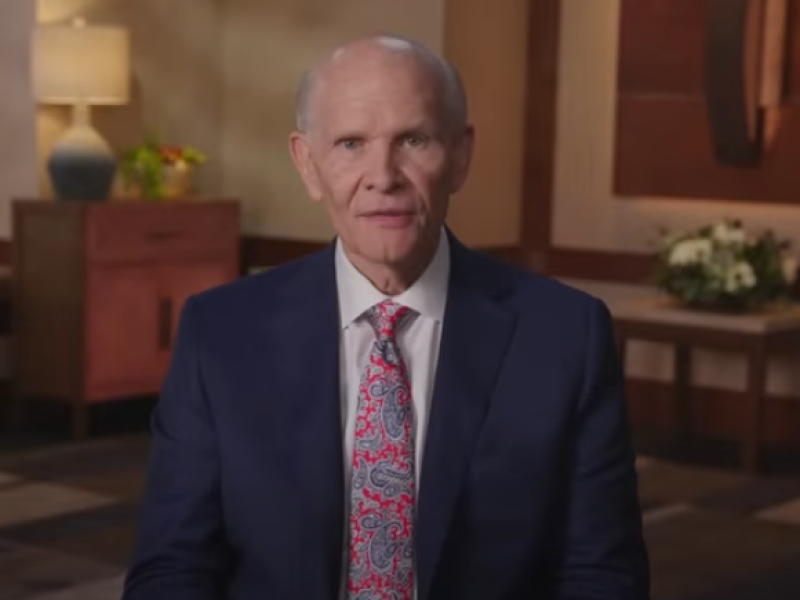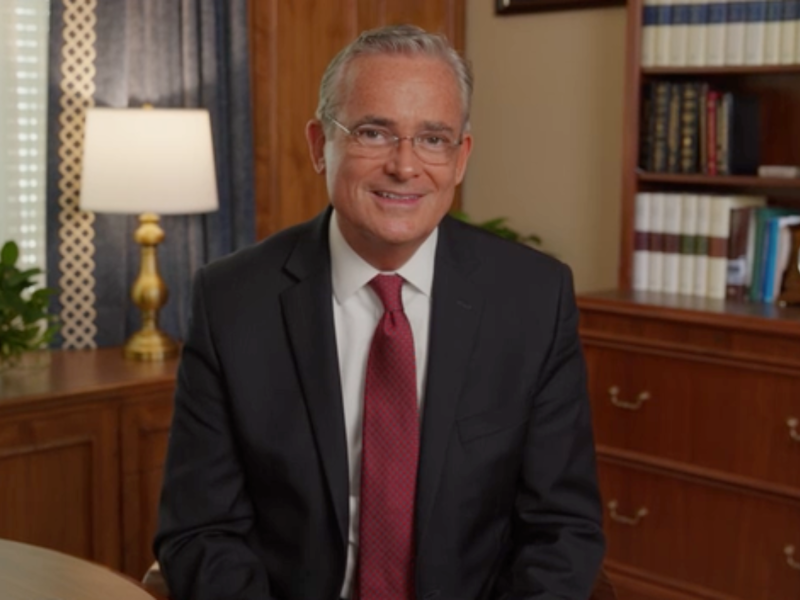We made it to the end of the year studying the Doctrine and Covenants, a book of questions and answers. At the beginning of 2025 we set out to A.S.K. (Always Seeking more Knowledge), so how did you do? Did you feel your relationship with Christ strengthen through receiving answers? We hope so, and we brought on a family of guests today to share some of their favorite Doctrine and Covenants scriptures that have brought them through times of good and times of trial. Happy Holidays from the Sunday on Monday podcast, and we’ll see you again for the Old Testament.
There have been six official proclamations in the 195 year history of the Church of Jesus Christ of Latter-day Saints, and this year is the 30th anniversary of The Family: A Proclamation to the World. On today's episode we are talking with church historians about all six, what they meant for the saints at the time, and what it means when there is a proclamation issued. And even though some are almost 100 years old we will ask what eternal truths can be learned from their words.
In the very back of the Doctrine and Covenants you will find Official Declaration 1 and Official Declaration 2. Todays discussion will talk about what a declaration means and how they set the pattern for continuing revelation. As the ninth Article of Faith says: "We believe that [God] will yet reveal many great and important things pertaining to the Kingdom of God.
This is an episode of jubilation, a real jubilee we are all invited to attend. So what are we celebrating? Doctrine and Covenants sections 137–138 answers that question and reminds us it is a celebration we won’t want to miss. The jubilee has its roots in Old Testament doctrine and has been going on for a very long time.
On June 27, 1844 Joseph Smith and Hyrum Smith were shot in Carthage jail. A new section of the Doctrine and Covenants was added just in time for the 1844 publication including a memoriam to their martyrdom. What is now Section 135 has those words from the prophet’s friends announcing the death as a seal to the testimony of the Book of Mormon and Doctrine and Covenants.
Jesus is coming, look busy could be seen as the theme to Doctrine and Covenants 133. Near the same time that Section 1 was revealed as a preface to the Book of Commandments, Joseph Smith received Section 133 as an appendix. These closing words to the saints are focused on the coming of Christ and what we need to do to prepare.
God’s goal for His children is to see us with Him again. That eternal life is best described in John 17 and Doctrine and Covenants 132 as “knowing” God. This week’s Come, Follow Me lesson teaches sacred truths restored through Joseph Smith that allow us to know God and bring ourselves closer to Him—in this world and the world to come.
The doctrine of baptism for the dead is one of the ways we are welded together with our ancestors. Doctrine and Covenants 125–128 contains letters from Joseph Smith to the saints where his mind was on this eternal topic. And the people of the church reacted immediately to participate with gladness in this ordinance.
Persecution in Missouri led the early saints to the swamplands of Illinois, and over a year had passed since the last recorded revelation from the Lord. Doctrine and Covenants 124 is a message to the free saints making their way in a new community. It contains blueprints for the important buildings their growing town needs, and instructions for their lives.
Elder Renlund first suggests making sure we are doing what God has asked of us and “not something extra that we impose on ourselves.”
1 Min Read
Elder Kearon believes this truth “can console all of us.”
1 Min Read
These resources can help any family dive deeper into the Doctrine and Covenants in 2025.
1 Min Read
God is aware of everything you are going through right now, and He has words of comfort for us. Doctrine and Covenants 98–101 has words from God given through Joseph Smith to the Saints at Jackson County. Even though Joseph did not know the details of their trials, God did, and we can trust that He knows ours as well. So, “let your hearts be comforted” (Doctrine and Covenants 98:1), no matter what you are facing.
The Saints in 1833 were split between two Zions and were commanded to build two temples to bless God’s people. Doctrine and Covenants 94–97 makes the commandment of building temples a priority. Today, temples are still being constructed across the many places we call Zion. And for those of us not on the building committee, we can still make visiting and honoring the house of the Lord a personal priority.
Doctrine and Covenants 93 contains eternal truths that overturned the traditional religious ideas of that time. While it is not the longest section of revelation by the number of verses, it is packed with doctrinal principles—from the nature of God to how we can learn about Him. The light and truth in these scriptures can illuminate the rest of the doctrine that we and the early Saints both will come to understand.
Understanding history is all in the stories of the people who lived it. This week’s Come, Follow Me study of Doctrine and Covenants 89–92 features the Word of Wisdom. But today, we’ll learn from a historian about Emma Smith, the School of the Prophets, the translation of the Bible, and the attitudes at the time toward alcohol and tobacco that colored the world when this revelation took place. We’ll also discuss a woman who lived a whole life of service around this one event in scripture.
Two days after the revelation on war given in Doctrine and Covenants 87, the Prophet Joseph Smith received a breath of fresh air with a revelation on peace in section 88. This section is known as the “olive leaf” revelation, containing eternal truths about our relationship with God and a command to draw closer to Him in a temple. We now live in the world they wished for—where temples dot the earth, and Zion can be anywhere we gather.
Jesus relays a parable in Matthew about wheat and weeds called tares. To us, these two plants can grow together and seem indistinguishable from each other. Sections 85–87 of the Doctrine and Covenants have more insight on who we are and what our job is (and isn’t) in this story.






